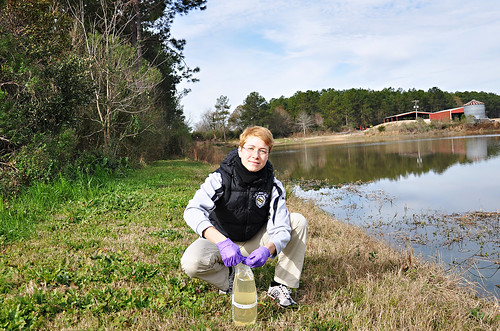
The world will have many more mouths to feed in the next few decades – projected to be more than 9 billion by 2050 – but the amount of arable land is not getting any larger, droughts are taking their toll on fresh water, and there are fewer experienced farmers to do the work. How will food get on the table?
By globalizing precision agriculture education – the art of gathering and using data to make sound, timely decisions for agricultural production, such as when and how much fertilizer, water, or other resource to add. Precision agriculture allows growers to maximize yield while minimizing waste. The result is more food to feed the hungry, a reduced environmental footprint, and greater profits for producers.
The University of Georgia (UGA) and Italy’s Università degli Studi di Padova (UNIPD) will soon sign a memorandum of understanding (MOU) to offer a dual graduate degree program in sustainable agriculture. The two universities have cooperated in recent years to enhance each other’s precision agriculture programs and students learn how to function in the globalizing agricultural economy.
Precision ag is important because it allows us to use information to make management decisions that improve our efficiency, notes Dr. George Vellidis, professor in UGA’s Crop and Soil Sciences Department.
The MOU is the maturation of initiatives funded by the National Institute of Food and Agriculture’s (NIFA) International Science and Education program. Under that program, two land-grant universities (UGA and Auburn University) conducted graduate student exchanges with partner institutions in Europe.
The dual degree will be a master’s degree in sustainable agriculture. Students will take courses at their home institutions during the first year of the program and then complete their thesis research at the host institution during the second year. Upon completion, students will receive master’s degrees from both institutions. The program will begin with the 2016 academic year. Vellidis expects to have five students from each institution enrolled in the program within the next two years and maintain the program at that level.
This program helps address the need for scientists in food, agriculture, and related fields, as indicated in a NIFA-funded report by Purdue University.
Vellidis said that, unlike many other business models, when agriculturalists from across the globe work together, we can better solve the constant problems that emerge and threaten food production and food security. When viewed from the food security perspective, optimal use of crop inputs ensures that we have used our resources as efficiently as possible.
NIFA invests in and advances agricultural research, education and extension and seeks to make transformative discoveries that solve societal challenges.



